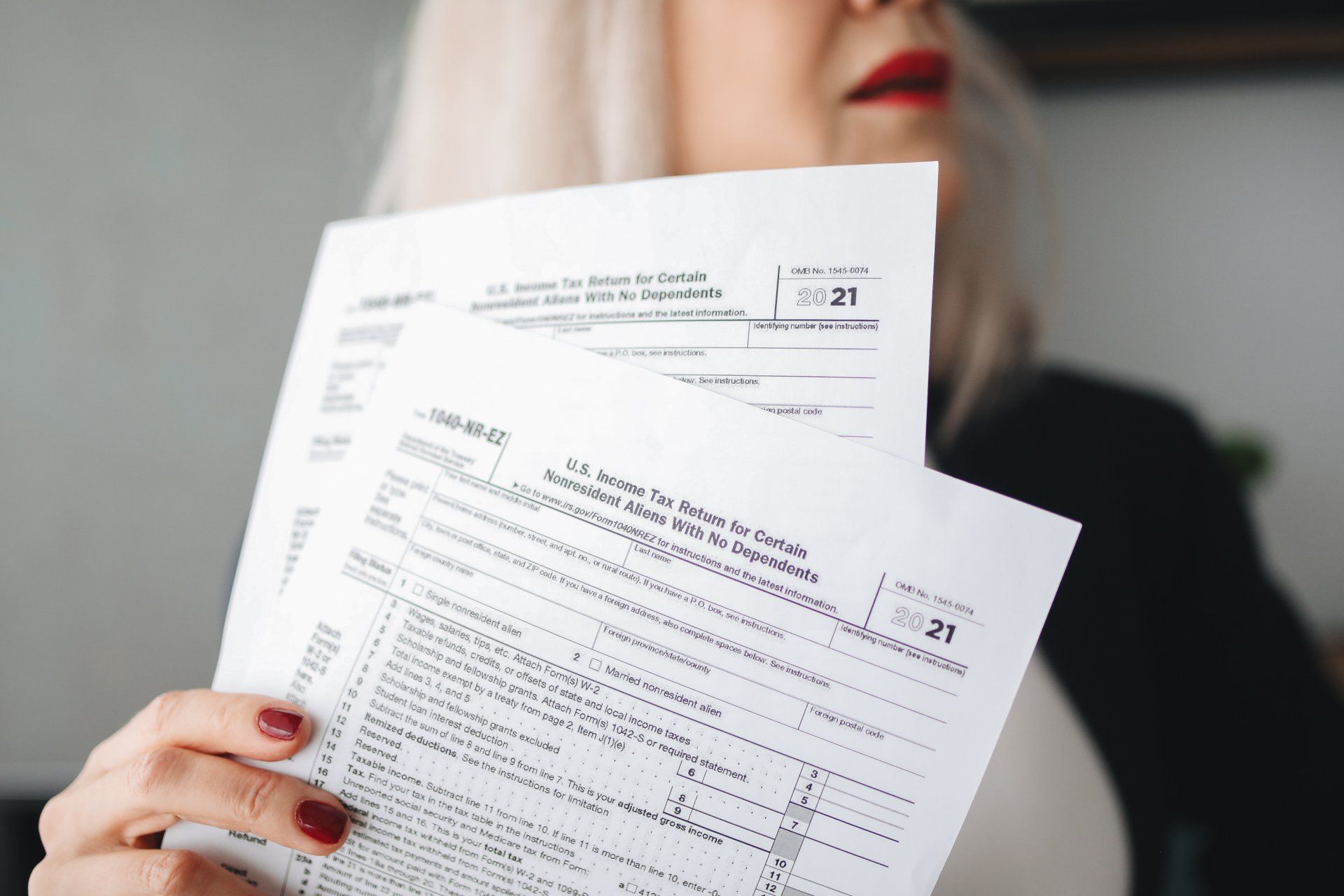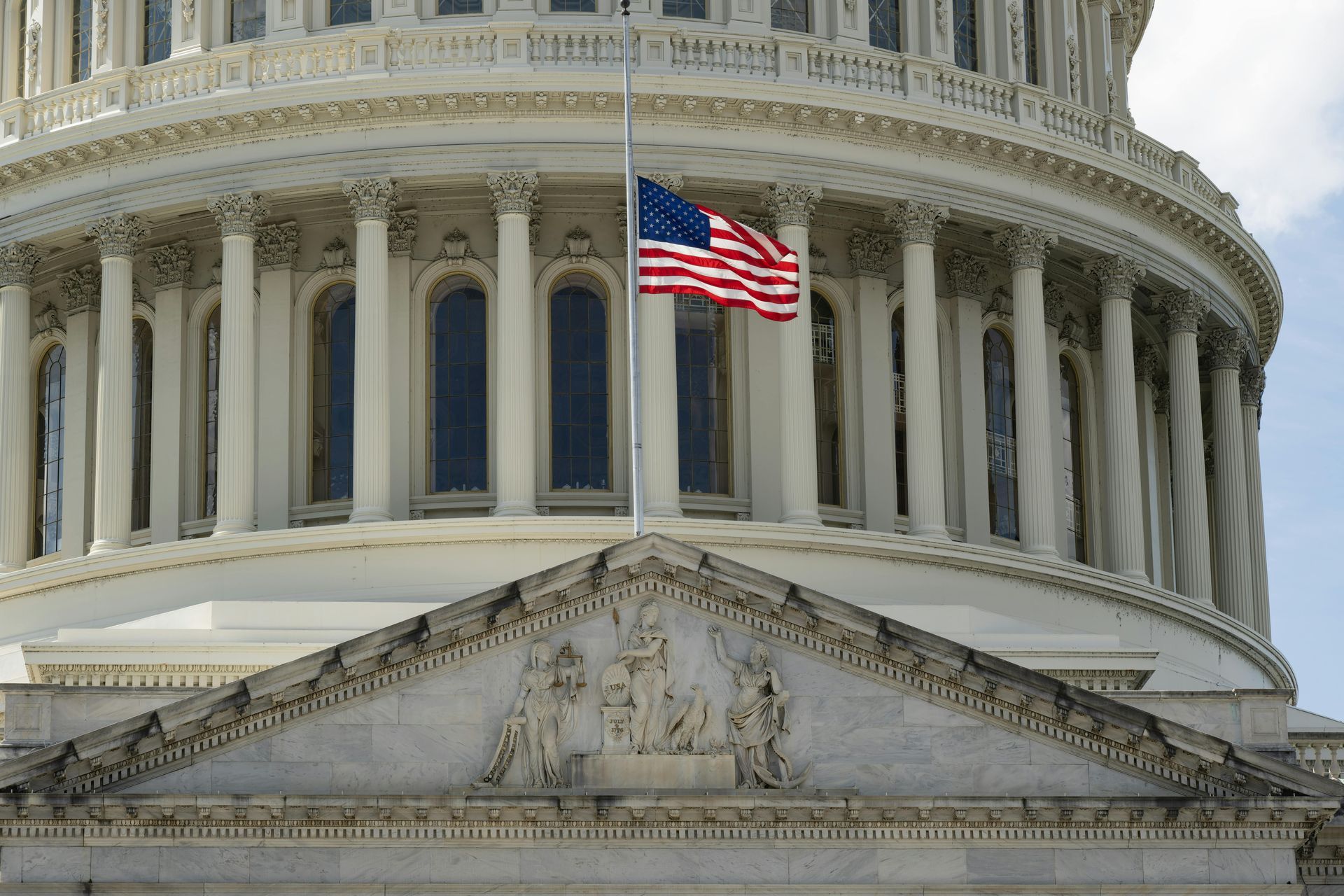O que esperar da sua entrevista N-400
Santos Lloyd Law Team • October 13, 2023
Click here to read this article in English
Você chegou ao final da sua jornada para se tornar um cidadão americano - você teve seu green card pelo tempo necessário, e completou e enviou com sucesso seu formulário N-400 para finalmente se candidatar a se tornar um cidadão americano. Você acabou de receber o aviso de entrevista do N-400 pelo correio, mas o que acontece nessa entrevista?
A entrevista do N-400 consiste em duas partes separadas: um teste e uma entrevista propriamente dita. Abaixo, vamos detalhar cada parte:
- Parte I - Teste de Naturalização
A primeira parte da sua entrevista do N-400 consistirá em um teste. O teste é composto por dois componentes: inglês e cívica. Durante a parte de inglês do teste, você deve demonstrar que entende o idioma inglês e que tem a capacidade de ler, escrever e falar inglês básico. O oficial vai pedir que você leia corretamente uma frase em voz alta e também vai pedir que você escreva corretamente uma frase.
Durante o teste cívico, você vai responder a perguntas importantes sobre o governo e a história americana. Há uma lista de 100 possíveis perguntas que o oficial pode fazer a você. No entanto, o oficial só fará 10 perguntas durante sua entrevista, e você só precisa responder corretamente a 6 dessas perguntas para passar.
- Parte II - Entrevista de Naturalização
Depois de passar no seu Teste de Naturalização, o oficial vai informar que você passou no teste e vai passar para a entrevista de Naturalização. Durante esta entrevista, o oficial vai revisar seu pedido de N-400 com você. O oficial vai verificar se todas as informações listadas no formulário estão corretas e vai corrigir quaisquer erros ou atualizações no formulário. O oficial também vai revisar seu histórico de viagens durante os últimos 5 anos. É importante que você saiba sua data de saída dos EUA, sua data de retorno aos EUA, qual país você visitou e qual foi o propósito da sua visita. Por fim, você vai revisar as questões de segurança e as questões constitucionais no formulário juntos com o oficial.
O que acontece depois que eu passo no teste e completo a entrevista?
Dependendo do escritório em que sua entrevista está agendada, você pode se tornar um cidadão americano no mesmo dia! Alguns escritórios oferecem cerimônias de naturalização no dia em que você completa com sucesso sua entrevista, mas você terá que perguntar ao oficial se esse serviço está disponível. Se não estiver, não se preocupe - você será agendado para retornar para uma cerimônia de naturalização. Na cerimônia de naturalização, você fará um juramento de fidelidade e receberá seu certificado oficial de naturalização. É muito importante manter seu green card até que seu certificado de naturalização seja emitido. Na cerimônia de naturalização, um oficial explicará o processo para obter um número de segurança social e um passaporte.
E se eu não passar no teste cívico?
Se você não passar no teste cívico na primeira tentativa, a imigração (USCIS) remarcará seu horário e você voltará em outro dia para refazer o teste. É muito importante estudar, pois você só tem 2 tentativas para fazer o teste de inglês e cívico. Você pode encontrar as 100 possíveis perguntas que o oficial pode fazer a você neste link:
Este blog não se destina a fornecer aconselhamento jurídico e nada aqui deve ser interpretado como estabelecimento de um relacionamento advogado-cliente. Por favor, agende uma consulta com um advogado de imigração antes de agir com base em qualquer informação lida aqui.
This Facebook widget is no longer supported.
Similar Posts

To be eligible for U.S. naturalization based on being a lawful permanent resident for at least five years, you must: Prove you have been a lawful permanent resident of the U.S. for at least five years; Demonstrate continuous residence in the U.S. for at least five years immediately before applying for naturalization; Show you have been physically present in the U.S. for at least 30 months out of the five years immediately before applying for naturalization; and Pass the naturalization test. The naturalization test consists of the English and civics test. The applicant must show his/her ability to read, write, and speak basic English. The interviewing USCIS officer will ask the applicant to read a sentence in English and to write a sentence in English. If the applicant demonstrates his/her ability to read, write, and speak English, the applicant passes this portion of the test. The civics test is an oral test, and the applicant is asked questions about the American government and history. The USCIS officer will ask the applicant up to 10 questions from the list of 100 civics test questions. To pass this portion of the test, the applicant must answer at least 6 questions correctly. If the applicant satisfies all of the eligibility requirements and passes the naturalization test, the last step before naturalizing is to attend the oath ceremony to become a naturalized U.S. citizen. If you have any questions and would like more information about your eligibility for naturalization, please contact our office to schedule a consultation with our experienced immigration attorneys.

U.S. Citizenship and Immigration Services made changes to the naturalization application and the filing fee which became effective April 1, 2024. The naturalization application, Form N-400, was updated. The new form edition is dated 04/01/2024. As of June 3, 2024, USCIS will only accept the new form edition. The filing fee for Form N-400 also changed. The prior filing fee was $640.00 plus a biometric fee of $85.00, for a total of $725.00. The new filing fee became effective April 1, 2024, so all naturalization applications postmarked April 1, 2024, or later, must include the new appropriate filing fee. The new general fee if you file a paper application is $760.00, and if you file the application online the fee is $710.00.

The Military Selective Service Act requires all men living in the United States to register with the Selective Service System within 30 days of turning 18 years old and up to 26 years of age. The Selective Service System (SSS) is used by the U.S. government to draft soldiers into service during times of war. There are a few exceptions to the registration requirement: First, if you hold non-immigrant status until the age of 26, you do not have to register with the SSS. Second, if you enter the U.S. after the age of 26, you do not have to register with the SSS, as the age requirement to register is between 18 and 26. Third, men born after March 29, 1957, and before December 31, 1959, are not required to register. To verify online go to: https://www.sss.gov/verify/ . The information you will need to provide is your last name, social security number, and date of birth. If you find your registration record, download, and print an official Selective Service Registration Acknowledgement Letter from the website and include it with your application. This is sufficient to show that you registered. If you can’t verify your registration because you don’t have a social security number or you didn’t have one when you registered, or you prefer to call, you need to call the SSS at: (888) 655-1825 . Note, failure to register will not automatically lead to the U.S. Citizenship and Immigration Services denying your naturalization application. In fact, even if you did not register and you were required to do so, the USCIS cannot deny your application if you show that you did not know you were required to register, or the failure to register wasn’t intentional. If you have any questions, please schedule a consultation with one of our experienced attorneys and we will be more than happy to assist you.

The federal government entered a partial shutdown on January 31, 2026, after Congress failed to pass a final funding package. While this follows the record-breaking 43-day shutdown from last fall, this disruption is expected to be brief, with a House vote anticipated for the first week of February. However, as of February 2, several key departments are operating under shutdown contingencies. If you are an employer or a foreign national, here is what you need to know about how this affects your immigration matters: Impacts for Employers Certified LCAs: The Department of Labor (DOL) has suspended the processing of Labor Condition Applications. This means employers cannot currently obtain the certifications required to file new H-1B, H-1B1, or E-3 petitions. PERM and Prevailing Wages: Processing for PERM labor certifications and prevailing wage determinations has halted. This will likely cause a backlog once the government reopens. E-Verify: The E-Verify system is typically taken offline during a shutdown. Employers should continue to follow I-9 requirements but may be unable to resolve Tentative Nonconfirmations (TNCs) until the system is restored. Impacts for Employees and Families Consular Services: While U.S. embassies and consulates are fee-funded, their operations may be reduced. If you have an upcoming visa interview, check the specific consulate's website for status updates, as delays are possible. USCIS Operations: Because USCIS is primarily funded by application fees, it remains open. You should still attend scheduled interviews and biometrics appointments unless notified otherwise. CBP and Travel: U.S. Customs and Border Protection (CBP) functions are essential. Ports of entry remain open, though you may experience longer waiting times due to staffing adjustments. At Santos Lloyd, we are closely monitoring the situation as it unfolds. Whether you are an employer seeking guidance on how this shutdown impacts your hiring plans or an employee with general questions regarding if or how you may be affected, please reach out to our office. We remain dedicated to providing the updates and professional assistance necessary to help you navigate these disruptions.

U.S. Citizenship and Immigration Services (USCIS) has announced a major change to the H-1B cap selection process. Under a final rule issued on December 29, 2025, USCIS will replace the long-standing random H-1B lottery with a wage-weighted selection system that favors higher-paid and more complex positions. The rule is scheduled to take effect on February 27, 2026 , just ahead of the fiscal year 2027 H-1B cap registration season, unless delayed by legal challenges. If implemented, USCIS is expected to release additional guidance explaining how employers must submit registrations under the revised process. This change marks one of the most significant reforms to the H-1B program in recent years. Up until 2025, all registrations were treated equally once the annual cap was reached. Under the new system, selection odds will be tied to wage levels based on the U.S. Department of Labor’s Occupational Employment and Wage Statistics data. All H-1B registrations will still be placed into a single selection pool, but registrations tied to higher wage levels will receive multiple entries into that pool, increasing their likelihood of selection. Lower wage levels will receive fewer entries, making selection less likely but not impossible. H-1B wage levels are not determined solely by salary. Each wage level reflects the complexity of the job, the level of responsibility involved, and the education and experience required . Entry-level positions involving routine duties and close supervision are generally classified at the lowest wage level, while positions requiring independent judgment, advanced skills, and significant responsibility fall into higher wage levels. The highest wage level is reserved for roles that involve expert knowledge, strategic decision-making, and substantial leadership or technical authority. USCIS is expected to closely scrutinize selected petitions to ensure that the wage level claimed during registration is supported by the job duties and salary offered in the petition. Any discrepancies between the registration and the petition may result in requests for evidence, denials, or enforcement action. With the elimination of the purely random lottery, employers should begin preparing early by carefully evaluating job descriptions, wage levels, and overall H-1B strategy. Accurate classification and thoughtful planning will be essential under this new wage-based selection system. If you are an employer considering H-1B sponsorship, or a foreign professional wondering whether your position may qualify under the new wage-based system, consulting with experienced immigration counsel is more important than ever. Santos Lloyd Law is actively advising clients on H-1B cap registrations and strategy under the new rules. To discuss your options or determine whether you may qualify, contact our office to schedule a consultation.

During the recent administration there has been an increase in issuance of Requests for Evidence for EB-1A petitions for those of Extraordinary Ability. A Request for Evidence is a request that is made by USCIS that should explain how the evidence is deficient in proving the criteria argued and what additional evidence needs to be provided by the applicant to meet the criteria. EB-1A petitions are already normally subject to higher scrutiny because their approval is the first step needed to apply for Lawful Permanent Residence or a green card. USCIS normally requires not just evidence but that the evidence be provided with context and information to show why it matters in a particular field. For example, if you were providing evidence of your membership in an organization that requires outstanding achievements of its members, just providing evidence of the membership is not enough. You must explain what that membership is and provide background information on the organization granting the membership. You also need to provide evidence on the criteria that is used to select the members, information on those who select the members to show that they are recognized experts, other documentation such as articles about the membership organization to show its importance, and any other relevant evidence and background information to show that the criteria is met. A request for evidence being issued prior to the current administration was not uncommon, but in the current climate it is more surprising to not receive a request for evidence for this type of case. It is important to remember that a request for evidence is not a denial. Depending on the validity of the information in the request and the substance some Requests for Evidence can be overcome, and the case be approved. It is important to carefully review the request and note if there are any errors in the content and application of the regulations by USCIS. If you have an attorney, you should work with them and make sure that you provide any evidence you think may be helpful. Although there is a deadline by which a response must be submitted, attention to detail and patience will go a long way when dealing with having to respond to a request for evidence. If you believe you may qualify for this type of visa, please feel free to contact our office.



